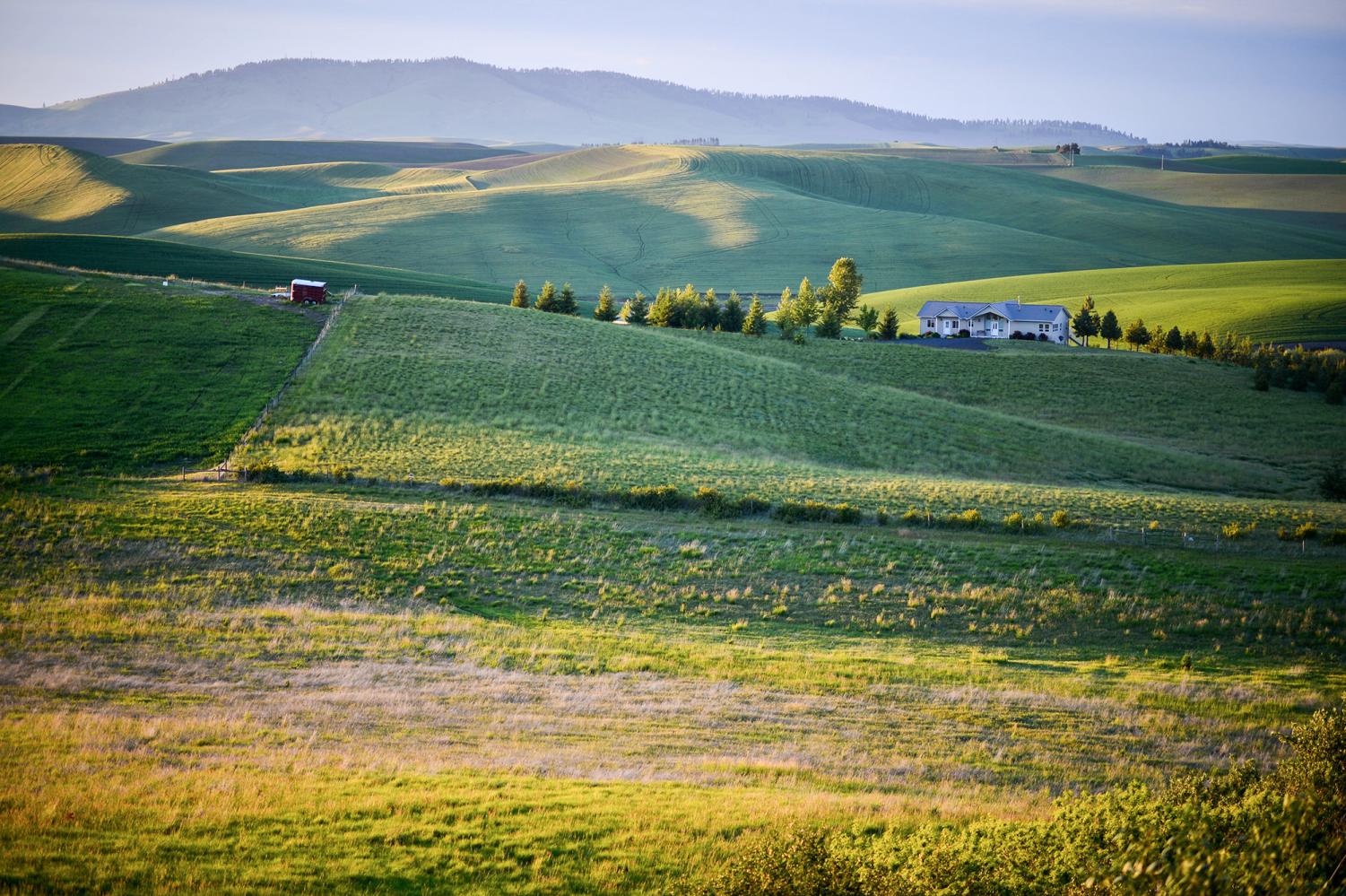Sylena Harper is a senior double majoring in biochemistry and chemistry from Bryant, Arkansas.
Weed killer up for debate
One farmer says Roundup is essential part of farmers’ toolboxes; others say they would never use it on plants
February 3, 2020
The Palouse Conservation District highlighted district plans for the next five years and celebrated its 80th anniversary at its third annual meeting on Thursday.
During the meeting, Larry Cochran, board of supervisors chair and third generation farmer since 1977, said the herbicide Roundup is important to the agriculture industry.
“Ninety-nine percent of the studies show there’s nothing wrong with Roundup,” Cochran said. “The [Environmental Protection Agency] has just come out and said that it’s perfectly fine as long as it’s used according to label instructions.”
There have been inconsistent findings related to the health risks of glyphosate — the active ingredient in Roundup — exposure. Several studies, including a study published by the University of Washington in the online journal Mutation Research/Reviews in Mutation Research show a link between glyphosate and cancer risk.
However, there are “no risks of concern to human health from current uses of glyphosate,” according to the EPA. In this claim, the EPA includes cancer and endocrine disruptor risks.
“If you really want to get down to it, it’s safer than table salt,” Cochran said. “Take a glass of salt water and it’ll kill you quicker than the Roundup will ever think about.”
More than 18,400 cases of non-Hodgkin’s lymphoma have allegedly been linked to Roundup, according to a 2019 article from Reuters.
“These lawsuits have been based on emotion, not fact,” he said.
Farmers need every tool available to them right now and Roundup is one of them, Cochran said.
Tim Paulitz, United States Department of Agriculture researcher and WSU adjunct professor in the Plant Pathology department, said he has studied glyphosate effects on soil microbes.
“The growers, for many years, kept asking me, ‘What effect is glyphosate having on soil microbes?’” Paulitz said.
With recent DNA technology, soil samples can be tested to identify and quantify thousands of bacterial and fungal species, Paulitz said.
Four years ago, Paulitz and his team ran an experiment testing the effects of glyphosate on microbial communities in the soil.
They tested soil that had been undisturbed and soil that had a history of glyphosate exposure, he said. They divided the samples in half, and treated half with glyphosate.
The team then cycled the crops for approximately five months and assessed the microbial DNA, he said.
“The take home lesson was we had a hard time finding any effects on the [microbial community] if we used the same rates that they used in the field, which are pretty low rates,” he said.
Soil microbes are affected more by location, cropping systems, tillage and other factors more than glyphosate, he said. In most cases, the effects of glyphosate couldn’t be quantified.
“Our conclusion from [the experiment] was that the glyphosate is probably not having detrimental effects on soil microbial communities,” he said.
Diane Curewitz, treasurer of the Pullman Community Garden, attended the meeting on Thursday.
“I would not want to use Roundup on my own garden and we don’t use stuff like that at the Community Garden,” Curewitz said.
She said she has not looked at the court cases but believes the employers of the people who sued the manufacturer told them to use more than the recommended amount.
At the meeting, Cochran said it is important to follow the label instructions for all chemicals whether it’s Roundup or common household cleaners.
“I’ve farmed the old way and I’ve farmed the new way,” Cochran said. “I don’t want to go back to farming the old way.”
Curewitz said that there are other ways to get rid of weeds without using Roundup.
“We want to get the weeds out other ways — digging, pulling weeds, cover-cropping to keep them from growing up, [and] growing plants close together so that the plants take over instead of the weeds,” Curewitz said.
The feasibility of weed management without using chemicals like Roundup depends on the crop size.
Brad Johnson, Middle Snake Watershed Manager and member of the Palouse Conservation District, focuses on stream restoration to protect and restore freshwater life cycles for salmon and steelheads — also known as salmonids.
“In the proper situations, light tillage can be maintained and still provide water quality and soil health benefits but the amount of tillage that would be needed to reduce downy brome or cheatgrass would be too much,” Johnson said.
If Roundup is banned, conventional farming strategies like tilling the ground will be used, he said. Using these older methods of weed management will cause more water and soil erosion.
Curewitz said that she can only speak for smaller gardens, but doesn’t know a better management system for farmers.
She said she would find it useful if the Palouse Conservation District had an in-depth discussion about weed management at their next meeting. She would like to know more about the pros and cons of maintaining crops using chemicals like Roundup and replacement methods.
While the possibility of Roundup having harmful effects remains, the benefits of the product outweigh the risks, Cochran said.
He said that he doesn’t want to tell other people how to farm, but he knows that using Roundup works for him.
“I have no problem if we have something in the future that will take its place but at this time there is nothing out there,” Cochran said.
Johnson said that the Palouse Conservation District needs more public involvement.
The group is voluntary and without the help of farmers and ranchers volunteering and offering their story, the way people protect critical areas and maintain agriculture’s viability won’t reach the public, he said.
The meeting was incredible because of the group’s diversity, Johnson said.
“I like that we are continuing to develop relationships with farmers and ranchers to find out what resource needs they want to protect on their farm,” Johnson said.



